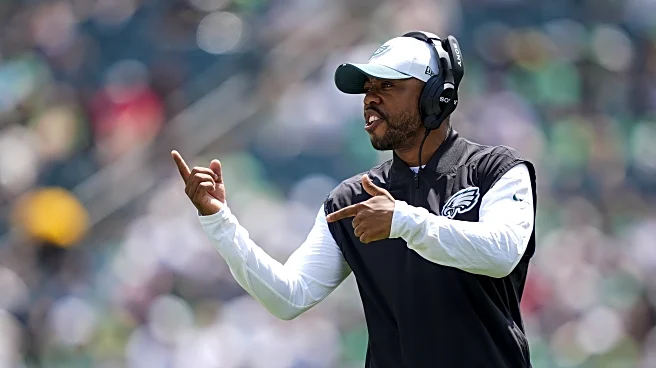Rapid Read • 8 min read
President Trump has successfully organized a summit between Russian President Vladimir Putin and Ukrainian President Volodymyr Zelensky, aimed at kick-starting peace negotiations between the two nations. This development follows a major summit at the White House, where Trump managed to secure some security assurances for European nations, although the enforceability of these guarantees remains uncertain. The peace process is set to begin without a ceasefire as a pre-condition, marking a significant shift from previous U.S. policies under the Biden administration. The negotiations will focus on the current military situation rather than maximal demands from either side, with the potential for a peace deal that could reshape post-war security arrangements.
AD
The initiation of peace talks between Russia and Ukraine holds significant implications for European security and U.S. foreign policy. A successful peace deal could lead to a new security infrastructure in Europe, reducing the need for U.S. military involvement. However, failure to reach an agreement could result in the U.S. withdrawing support for Ukraine, leaving European nations to manage the security challenges independently. This scenario poses a considerable challenge given the extensive Ukraine-Russia frontline, which would require substantial troop deployments that European countries may not be equipped to provide. The outcome of these negotiations could redefine geopolitical alliances and military strategies in the region.
The peace talks are expected to proceed, with the possibility of either a successful agreement or a breakdown in negotiations. Should the talks fail, President Trump may disengage from supporting Ukraine, shifting the burden of security to European nations. This would necessitate significant military and financial commitments from Europe, which may be difficult to achieve given current capabilities. European leaders will need to navigate domestic pressures and international expectations as they prepare for potential outcomes of the peace process.
The peace negotiations highlight the complexities of international diplomacy and the challenges of balancing national interests with global security concerns. European leaders face the task of managing public opinion and media narratives that have often been critical of Russia's actions. The broader geopolitical landscape is shifting, with Eurocentric perspectives losing dominance in global discourse. The peace process could serve as a catalyst for redefining international relations and security strategies in the post-Cold War era.
AD
More Stories You Might Enjoy











